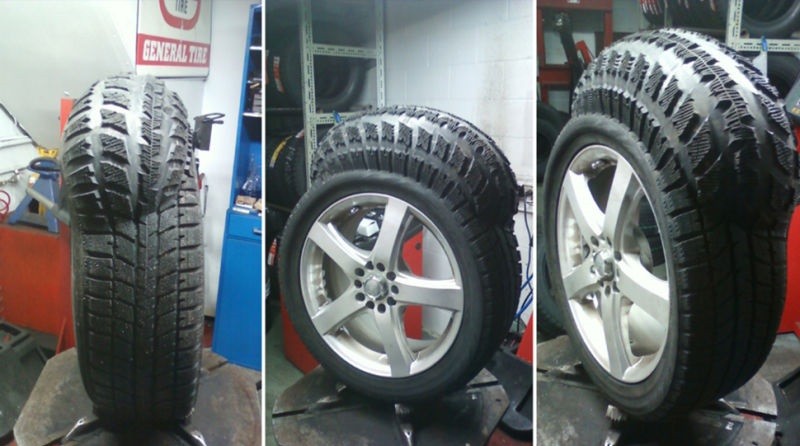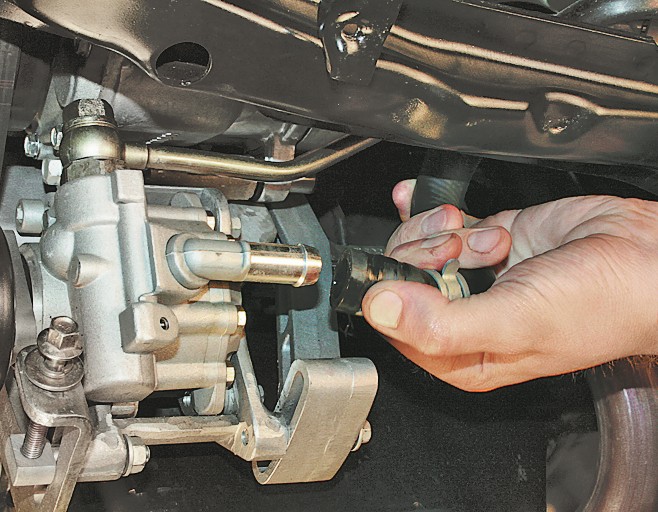
Top 10 Bad Car Symptoms You Should Never Ignore
Cars are complex machines made up of thousands of individual parts. Over time and use, these parts can wear out, become damaged, and cause problems. Repairing them can be costly, but it's actually better financially to fix faulty or faulty parts right away. This way you will avoid more serious problems in the future. These 10 signs of car trouble should never be ignored.
Tire bulges: If you hit debris or overinflate your tires, a bulging tire can form. Tire bulges are air bubbles in the sidewall where air is forced through the inner skin. This is a visible weak spot that can burst unexpectedly. To avoid a dangerous situation, replace bulging tires immediately.
Shift Jerking: Rough shifting is a sign of problems with your vehicle's transmission. Worn clutches, removed gears, and low transmission fluid levels can result in jerky or clumsy shifting. Whatever the cause, the problem will get worse every time your car changes gears, which can lead to complete transmission failure. A new transmission can cost thousands of dollars, so it's always cheaper to check for a fault.
Squeaky belts. Drive, V-ribbed or timing belts help to start the engine in time and power the electrical systems. If you hear a creak or chirp from under the hood, this is a sign of belt wear. Sometimes fixing it is as easy as adjusting, but some cars have belts that cannot be adjusted. Either way, get it fixed as soon as possible - worn belts can break and damage the engine beyond repair.
Stinky Exhaust: Car exhaust always has some smell, but if it smells stronger or worse than usual, something is wrong. Escaping fluids can ignite on hot surfaces, creating unusual odours. Catalytic converters are designed to filter exhaust gases, so a strong exhaust smell can mean that this part has failed. The air/fuel mixture can also be turned off, wasting fuel and making the exhaust stinky. Watch your nose and inspect the car to find the source of the smell.
Scratched paint. A small scratch on your car's paint can be a bigger problem than you think. The paint of your car not only gives it a beautiful appearance, but also protects the body panels from external influences. Paint scratches expose sheet metal to moisture, creating an area where rust can form. To prevent corrosion, paint over the scratch with factory paint or a coat of clear nail polish.
Wobbling steering wheel: Different problems can lead to the same shaky feeling when you hold the steering wheel. The cause may be a faulty or incorrectly adjusted suspension. The reason may be an imbalance of the wheel and tire, which also leads to premature tire wear. If the wheel bearing is worn, it can cause shaking, and in the worst case, it can fail and cause the wheel to come off the car. Regardless of the cause, a wobbly steering wheel limits the amount of control you have over your car.
Squealing brakes: Typically, a squealing or screeching brake indicates that it's time for a new set of brake pads. Brake pads have a metal tongue that is exposed as the pad material wears out. When this protrusion touches the brake disc, it makes a high-pitched sound. This is the beeping signal to change the pads, and the longer you wait, the worse the sound (and your stopping power) will be.
Burnt out light bulb. A blown headlight or taillight bulb won't change the way you drive, but it's a great way to get the attention of law enforcement. A quick light bulb change will be the easiest way to avoid an expensive ticket.
Smoke: It is dangerous to continue driving if you see or smell smoke in your car. There are many reasons for smoke in a car, but the most common causes are a fluid leak, an electrical problem, or a stuck brake caliper. Do not drive until you have found and corrected the problem causing the smoke, otherwise you risk a fire in the car.
Check Engine Light: The Check Engine light on the dashboard can be a real mystery. It tells you that something is wrong, but it never tells you what it is. Is it electrical or mechanical? Major or minor? You'll never know until you've scanned the error codes, so it's best to get a diagnosis right away to prevent further problems.

